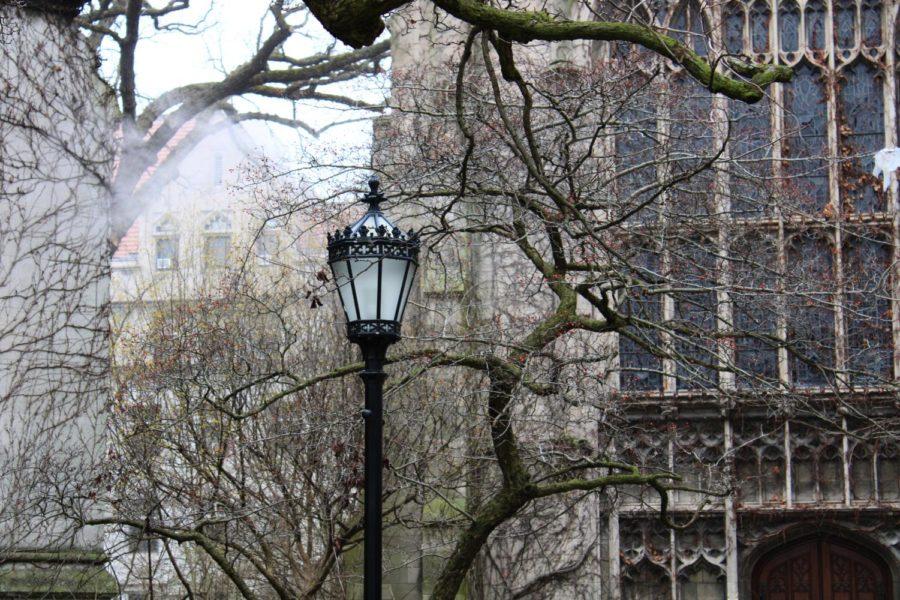Students discussed issues such as minority student marginalization, a lack of administrative initiative in conversations about race, and gentrification of the South Side at a virtual town hall held by the Race and Pedagogy Working Group on December 3. Nearly 150 people attended the event; of those who registered, there was an even split between faculty and students.
The event was coordinated by Ph.D. candidates Christina Roman, Julius Jones, and Allison Kanner-Botan and was billed as the first of a series of similar events in which issues regarding racism at the University of Chicago will be discussed and potential solutions will be evaluated. While faculty and staff were invited to attend, they were asked to let students lead the discussion.
Students raised a variety of issues they experienced on campus, including a lack of diversity. In response to a survey sent out before the event, one student wrote about an “uncomfortable hypervisibility that happens in the classroom when talking about race because I’m visibly Black but most of my classmates are white.” Another student echoed this feeling, expressing discomfort about being the only Black person in their math class. A few graduate studentts also raised concerns about a lack of diversity within their departments.
Some students felt like they were often ignored due to their ethnicity. “I have to be a bit more forward than other folks to get literally anybody listening,” said one student. “I can feel the invisibility thing in quite a number of spaces.”
Students also expressed disappointment with the lack of initiative from faculty when it comes to starting discussions about race. “Almost none of these conversations [about race] were started by the faculty and administrators. They were in response to things that we [students] were saying,” a graduate student said.
In the absence of staff engagement, some minority students felt a heavy responsibility to advocate for diversity and inclusion in their departments, especially when their white peers don’t necessarily feel that same expectation. “It’s very frustrating to think about my white peers and what they’re doing with their time and the fact that I have to balance not only furthering my research and my career, but also worrying about these issues,” one graduate student said. “Because if I and the other minority students don’t [take up diversity, equity, and inclusion efforts], then nobody will.”
Another topic of discussion was the University’s relationship with the South Side. A graduate student who grew up in the area expressed frustration over the gentrification of Woodlawn, Washington Park, and South Shore and about the lack of opportunities afforded to Chicago Public School (CPS) graduates. He also talked about receiving daily microaggressions “mainly by the community service officers on campus who would mistake me for a local, which I really am, but I feel as if they treat those who are locals as if they are criminals,” he said.
“It seems like the University is purposely existing in this bubble where it doesn’t have to think about how it’s impacting the community,” added another graduate student who grew up in Chicago.
Numerous attendees suggested that the University be held more accountable for its actions regarding race. Increased data collection on student experiences was pinpointed as one of the most actionable methods that could bring about this increased accountability. One participant proposed that students be surveyed annually instead of every few years.
A moderator also suggested that the University start collecting race-related data for staff reviews. “Part of our commitment [is] to begin the process of collecting that material and data so that we can have informed conversations about the current state of issues around race here at the University,” they said.
Some attendees accused the University of merely paying lip service to social justice and urged the University to fund specific academic, professional, and community efforts. “We want to see values articulated become priorities funded,” a moderator said. Potential areas for increased funding included doctorate programs for Black studies and ethnic studies and more funding for internship opportunities for South and West Side residents.
One student asked if the University's incentives could be realigned by having U.S. News and World Report weigh the experience of marginalized students when compiling their rankings. “There has to be a cost to being seen as racist…because it usually takes incentives for people to change,” the attendee said.
Student responses to the event indicated a high level of interest in future discussions. One student described the event as “the biggest source of validation I’ve had in my four years here so far.”









